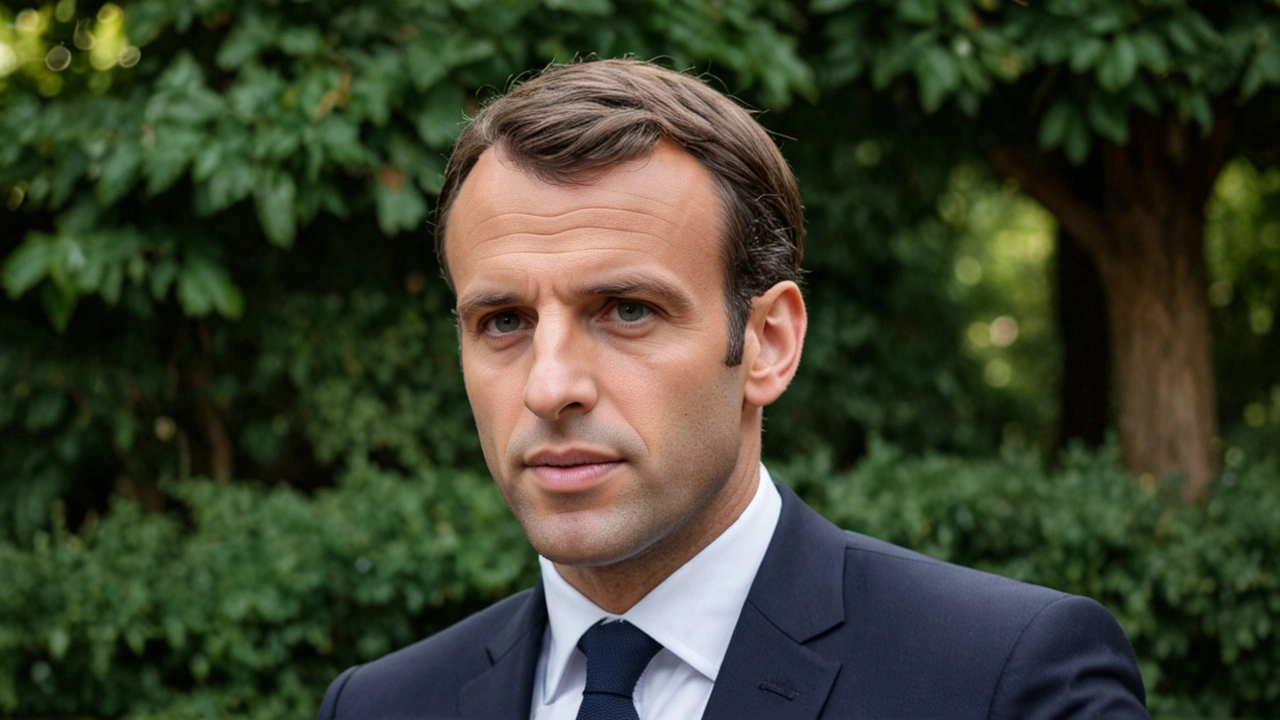
Emmanuel Macron Calls for Peace Amid Gaza Conflict
French President Emmanuel Macron has taken a firm stance against Israel's recent military strikes on Gaza and the subsequent approval of new settlements. Macron’s statements came during conversations with Arab leaders, emphasizing the urgency of finding a peaceful resolution to the ongoing conflict. His messages carried weight as they reflected a growing concern among European nations regarding the escalation of violence in the region.
Macron’s condemnation of Israel’s actions is not without significant context. The ripple effects of the recent assault by Hamas have intensified the conflict, leading to a series of retaliatory actions from Israel. As the situation spiraled, the humanitarian crisis in Gaza deepened, drawing international alarm and calls for de-escalation.
Sanctions and Diplomatic Efforts
President Macron did not stop at verbal condemnations. He also expressed support for European Union sanctions against a series of far-right Israelis, indicating his willingness to take concrete actions. This move is seen as an effort to pressure Israel into reconsidering its settlement policies and military strategies.
In his discussions, Macron highlighted the need for international collaboration to address the root causes of the conflict. He has consistently advocated for diplomatic solutions, emphasizing that lasting peace can only be achieved through dialogue and mutual understanding. Macron's approach appears to be in alignment with a broader European perspective, which often stresses negotiation over confrontation.
Macron’s Dialogue with Netanyahu
During a separate conversation with Israeli Prime Minister Benjamin Netanyahu, Macron reiterated his call for the end of the Gaza conflict. He pointed out the immense suffering experienced by Palestinian civilians, urging for a humanitarian ceasefire initiative proposed by U.S. President Joe Biden. This conversation underscored Macron’s persistent efforts to mediate between the conflicting parties and pave the way for a sustainable peace agreement.
Netanyahu’s stance, however, presents a complex challenge. Israel's government has consistently maintained that its military actions are in self-defense against terrorist threats posed by Hamas. The approval of settlements is often justified as a security measure. Macron’s position, therefore, intertwines with broader geopolitical strategies involving not just the immediate parties but also international stakeholders.
The Role of the European Union
The European Union’s role in this conflict is crucial. Macron’s calls for sanctions reflect a collective European sentiment that is increasingly critical of unilateral actions, such as settlement expansion, that exacerbate tensions. The EU has often positioned itself as a mediator, promoting human rights and international law.
The bloc's ability to influence the situation through economic and political means has the potential to offer some leverage. However, the diplomatic landscape is fraught with challenges, as EU members hold diverse opinions on the matter.
Impacts on the Ground
On the ground in Gaza, the situation remains dire. The recent military strikes have had devastating consequences on infrastructure, healthcare, and civilian life. The blockade imposed on Gaza has further compounded these issues, limiting access to essential supplies and humanitarian aid. International organizations have continuously called for unhindered access to assist those in need.
The suffering of Palestinian civilians, particularly children, has become a focal point of international advocacy. Macron’s emphasis on their plight aligns with a broader humanitarian perspective that seeks to prioritize the well-being of all individuals affected by the conflict.
Public Response and International Reactions
Macron's stance has elicited various reactions globally. Within France, the response has been mixed. While some support his firm stance for peace and human rights, others question the implications of sanctions on diplomatic relations. The international community, particularly nations with vested interests in the Middle East, continues to watch closely, weighing the potential impacts of France’s position on the overall dynamics of the conflict.
The broader Muslim world has welcomed Macron’s condemnation of Israeli actions, viewing it as a significant step towards acknowledging the grievances of the Palestinian people. Conversely, critics argue that such condemnations may undermine efforts to support Israel’s security concerns, potentially stoking further animosity.
The Path Forward
As the conflict continues, Macron's efforts represent a part of the larger tapestry of international diplomacy aimed at resolving one of the world’s most protracted conflicts. His calls for peace, cessation of hostilities, and the establishment of equitable solutions resonate with many who yearn for stability in the region.
The road to peace is undeniably challenging, laden with political, cultural, and historical complexities. However, the involvement of international leaders like Macron suggests a persistent push towards achieving a resolution that respects the rights and humanity of all involved parties.
Macron’s actions and statements embody a commitment to advocating for a balanced and just approach amidst the chaos. Whether his efforts will yield tangible results remains to be seen, but they do add a significant voice to the global call for peace and the protection of human rights in Gaza and beyond.